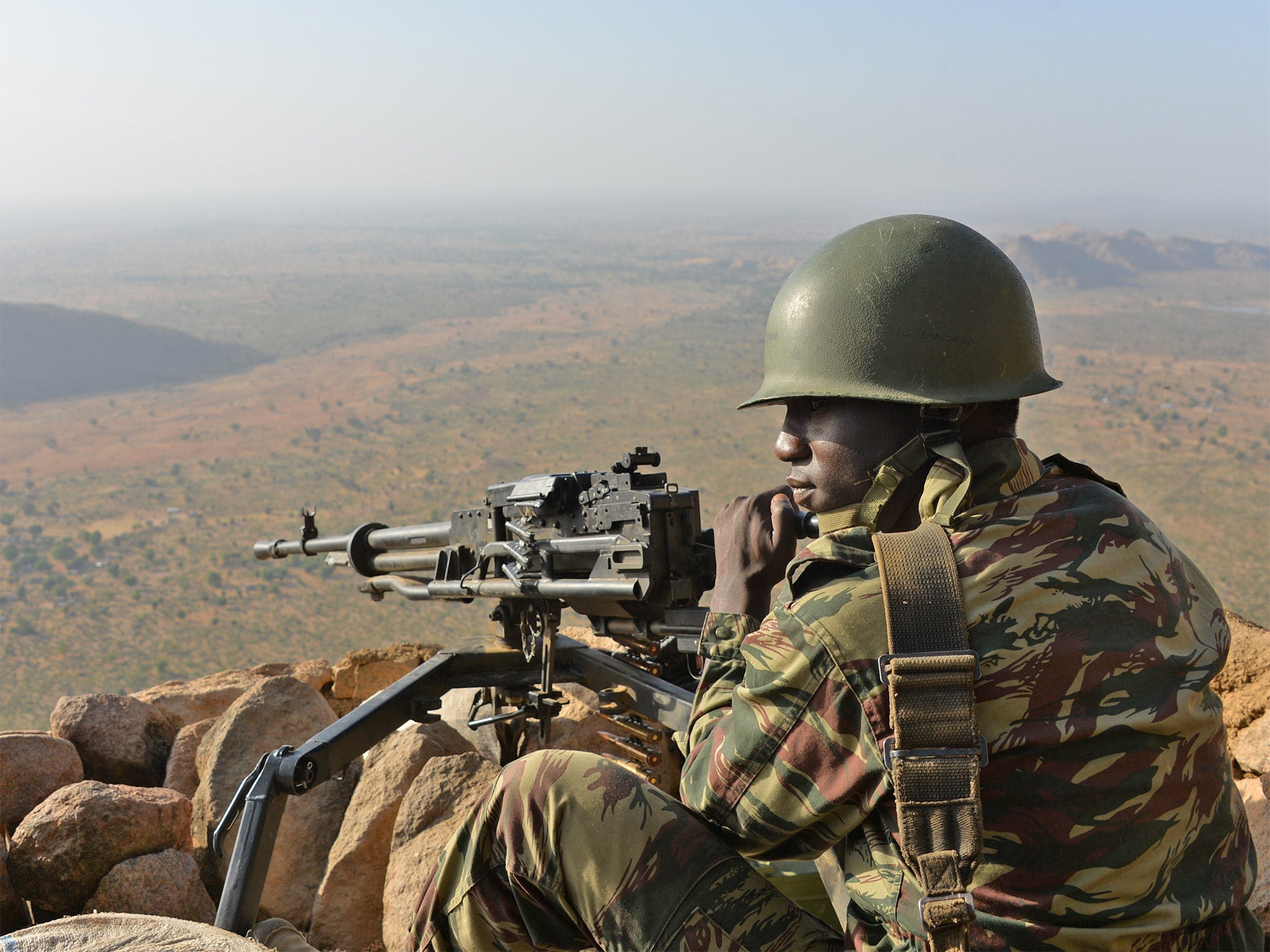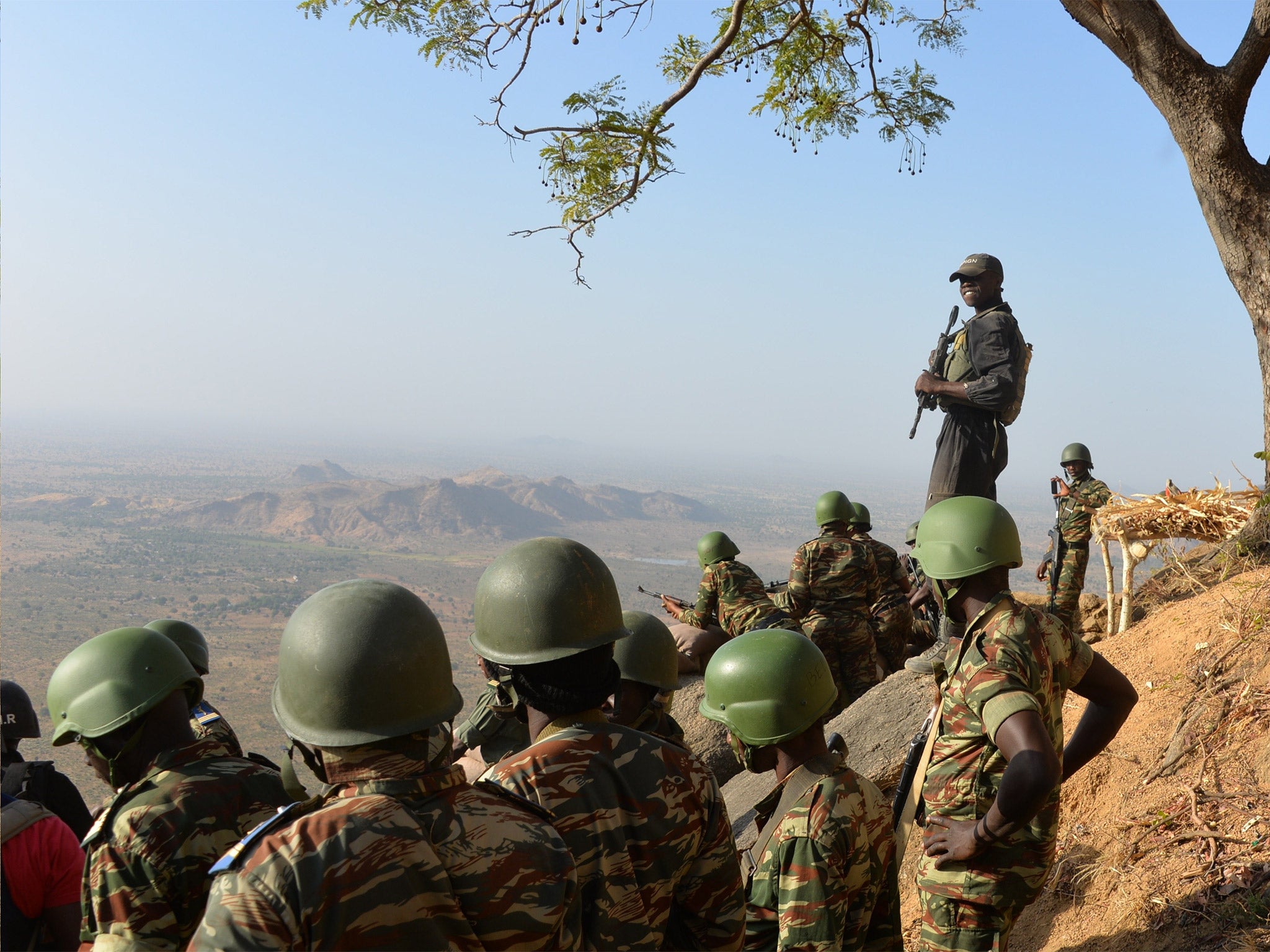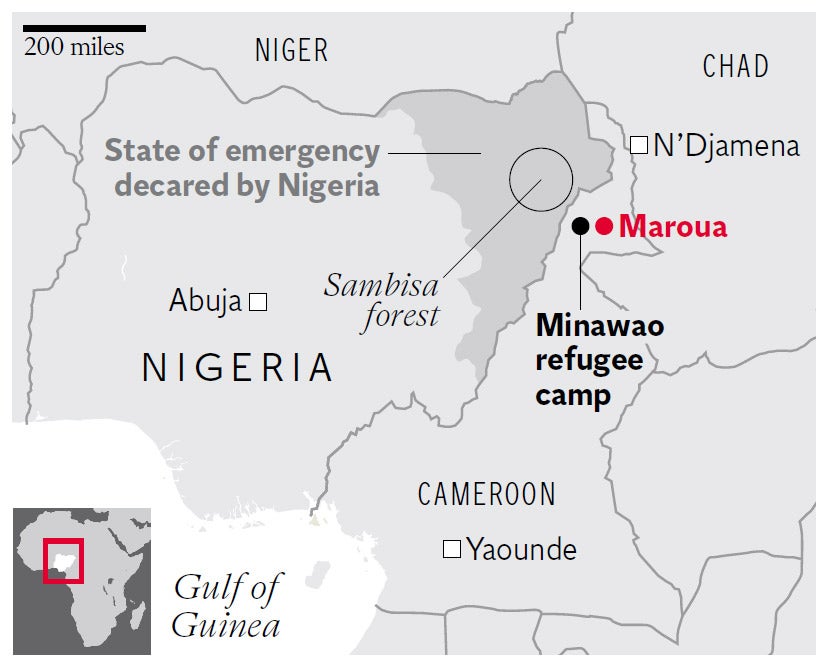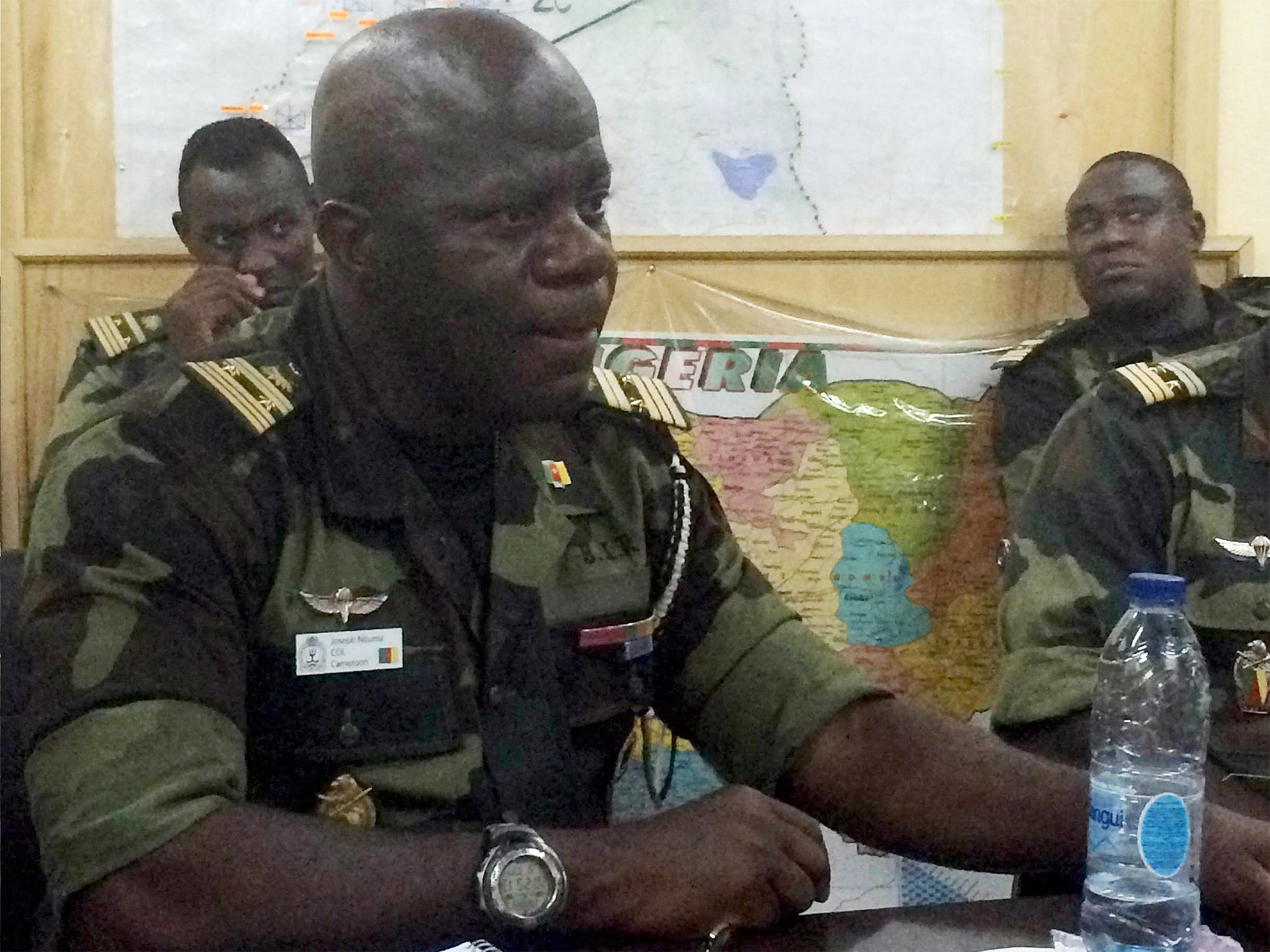Boko Haram: Joining Cameroon's forces as they take on the Islamist group
Alistair Dawber joins Cameroon’s elite forces flushing out jihadists in the jungles of Maroua

Your support helps us to tell the story
From reproductive rights to climate change to Big Tech, The Independent is on the ground when the story is developing. Whether it's investigating the financials of Elon Musk's pro-Trump PAC or producing our latest documentary, 'The A Word', which shines a light on the American women fighting for reproductive rights, we know how important it is to parse out the facts from the messaging.
At such a critical moment in US history, we need reporters on the ground. Your donation allows us to keep sending journalists to speak to both sides of the story.
The Independent is trusted by Americans across the entire political spectrum. And unlike many other quality news outlets, we choose not to lock Americans out of our reporting and analysis with paywalls. We believe quality journalism should be available to everyone, paid for by those who can afford it.
Your support makes all the difference.Alongside advertising banners that hang across the streets in downtown Yaoundé, Cameroon’s administrative capital, others issue a rallying cry. “The fight against Boko Haram is a national cause,” they proclaim.
But for the country’s government, which is increasingly confident that it is winning the struggle against the Islamist group, the fight is also an international one. Cameroon’s military is already receiving help from outside – from the Americans, the French and the Israelis among others. But it argues that it needs more assistance to neutralise the threat from the murderous group, which in March swore allegiance to Isis, the jihadists who have violently imposed their brand of Islamism on parts of Syria and Iraq.

“We are facing a war that two years ago wasn’t expected by anyone,” said Louis-Paul Motazé, the secretary-general of Cameroon’s prime minister’s office and himself a senior member of Yaoundé’s government, in an interview with The Independent.
“We need lots of money, we need arms, we need intelligence. But are we going to win this war? Yes, we are going to win this war.”
For a few months last year, the West became obsessed by Boko Haram after the kidnapping of 276 schoolgirls in Nigeria. Along with other captured girls they were taken to the lawless border region that straddles Nigeria and Cameroon, and – while some have been released or rescued – many are still being held, most believed to have been married off to Boko Haram militants. The international attention to the story that once led to television appearances by such figures as Michelle Obama and David Cameron, holding signs calling for the girls’ release, has moved on.
But for Cameroon, which has meanwhile faced an increase in attacks in its northern frontier areas, the threat is still very real. Mr Motazé diplomatically says the war against Boko Haram is a regional one and that his government is an ally of Nigeria, the birthplace of Boko Haram and by far the worst affected country.

But the reality is different. The Independent travelled to Maroua in the north of Cameroon to areas that have been attacked by Boko Haram, and joined Cameroon’s elite infantry unit, the BIR, on patrols to flush out the jihadists.
Since 1 August last year, the BIR has been in charge of the fight against Boko Haram. Colonel Joseph Nouma commands the northern unit, which along with Chadian soldiers to the north, has pushed Boko Haram back into the Sambisa forest, a vast jungle area which Colonel Nouma describes as “the heart of Boko Haram’s operation”.
“We have developed an intelligence network inside Nigeria, but it becomes difficult at certain points,” he said. “We have a close co-operation with Chad, but relations with Nigeria are more informal. The Nigerians will not allow us to cross the border and chase Boko Haram.”

He added: “We hope for change from the Nigerians [under new president Muhammadu Buhari, who was inaugurated two weeks ago], and the best change would be to see co-operation with foreign troops. During his campaign, Mr Buhari said he would not accept foreign troops in Nigeria.
“But we need the Nigerians to accept the intervention of foreign military in their country to help in the fight against Boko Haram.”
In the nearby refugee camp at Minawao, home to at least 50,000 Nigerians forced from their villages by Boko Haram, refugees give accounts of the Nigerian military standing by as the militants planned attacks.
The BIR commanders said that they had been attacked not only by suicide bombers and improvised explosive devices, but also by more conventional weapons, including 60mm mortars and armoured personnel carriers. These have been stolen from the Nigerian military, and in some cases still bear the serial number plates.
On patrols with BIR forces, it is clear that they are making gains against Boko Haram. They point out that attacks come across the border now, rather than from cells operating inside Cameroon. They say they have captured more than 600 fighters in the operation, which has cost 30 soldiers’ lives.
But for all the success of the Cameroonians and the Chadians further north, without greater co-operation with Nigeria it will be hard to deal a decisive blow to Boko Haram.
Driving militants back across the border may help Cameroon’s national cause, but it will not eradicate the group, and could allow it to consolidate in Nigeria. Indeed, since President Buhari’s inauguration – following a campaign when he promised to kill off Boko Haram – several suicide attacks claimed by the group have killed scores of people.
Colonel Nouma says that Boko Haram’s pledge of allegiance to Isis was the act of a group on the run, a sign that it was weak and looking for ways to attract support.
Yet when asked whether the war against Boko Haram can be won, he is less optimistic than his political bosses in Yaoundé. “The war cannot be won in classic military terms,” he said. “Other steps, political, cultural and educational must also be taken. And it will take a long time.”
Join our commenting forum
Join thought-provoking conversations, follow other Independent readers and see their replies
Comments